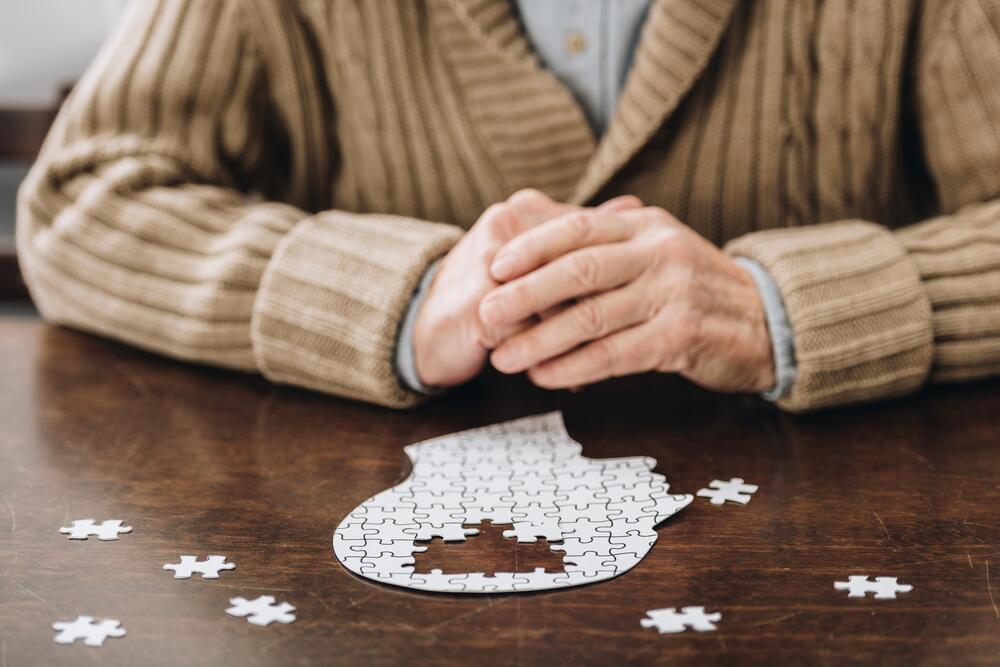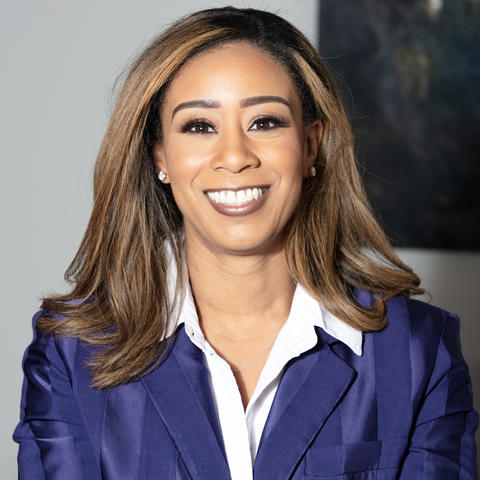
Section Branding
Header Content
As dementia diagnoses rise, a Georgia nonprofit steps in to support caregivers
Primary Content
LISTEN: Beyond Dementia Coalition helps caregivers navigate the unique challenges of dementia and prepare communities for a growing public health crisis. GPB Morning Edition's Pamela Kirkland speaks with the nonprofit's program development director Cloud Conrad.

Caring for someone with dementia can be emotionally demanding, isolating, and misunderstood. A Georgia-based nonprofit is working to change that by supporting caregivers and equipping entire communities to better respond to dementia.
GPB's Pamela Kirkland spoke with Cloud Conrad, program development director for the Beyond Dementia Coalition, on Morning Edition about preparing for a future where more families will be called to care.
TRANSCRIPT:
Pamela Kirkland: It's Morning Edition. I'm Pamela Kirkland. Nearly 1 in 5 adults in the U.S. are caregivers. And here in Georgia, 60% of those caregivers are women. For those caring for someone with dementia, the work can be especially intense. One local organization is trying to change that, not just by supporting caregivers, but by preparing entire communities to better recognize and respond to dementia. Cloud Conrad is the program development director for the Beyond Dementia Coalition. She joins me now. Thank you so much for being here.
Hi, thanks for having me, Pamela.
Tell me about the Beyond Dementia Coalition and what brought you to this work.
Cloud Conrad: I think what brought so many of the Beyond Dementia Coalition's board members to this work is an attempt to repurpose, perhaps, grief that we experienced caring for a person living with dementia — and after that person passes on, what do we do with that energy and that time and that passion to help other dementia caregivers? That's what brought me into this work. And ultimately that's how I met our CEO, Bill Whittle, and we joined together to bring Beyond Dementia Coalition into formal 501(c)3 status.
Pamela Kirkland: So I have personal experience with dementia. My grandmother dealt with dementia and I watched my mother act as a caregiver for her. Dementia, it's a different kind of caregiving. Can you talk a little bit about what makes it so unique?
Cloud Conrad: One of the main differences between dementia care and care for persons experiencing any other kind of issue or simply aging — normal aging — is that those who are living with dementia, because of the changes, the cognitive changes that the disease causes, it changes their relationship to the person who is caring for them. Cancer doesn't cause that, heart disease doesn't cause that, but dementia does. And one of the main reasons for that is because dementia, over time, affects one's ability to communicate effectively, accurately, and remember those communications as well.
Pamela Kirkland: Dementia is one of those diseases that does come with stigma and it's stigma in terms of talking about it and talking around it. How do you navigate that and how does your organization help people navigate that stigma that's associated with dementia?
Cloud Conrad: Well, thank you for that. I think one thing is inspiring curiosity. And the other is helping to kind of shift people's perspectives. In training, I hear — as I'm getting training and new certifications — the phrase "challenging behaviors." Challenging for us certainly, but the person living with dementia is challenged themselves and they are only — they are working with the skill that they have left. They are not choosing to be difficult or appear manipulative or some other things that I've heard people say. And if we can just get people to understand: The person living with dementia, their brain is dying. They are losing the ability to communicate as they desire and they are losing ability to interpret and respond to the world around them in the way that they once did. If we can make those communications, if we can just ask that question of people, then we can begin to reduce stigma and bust through these misperceptions and myths.
Pamela Kirkland: Your group offers training not just to caregivers, but also to people in public-facing jobs like grocery clerks. Why is that public awareness piece so important when you're talking about dementia caregiving?
Cloud Conrad: Today, Pamela, 1 in 5 households is affected in some way by dementia, whether there's a person diagnosed living in that household or where that's a sibling or a child living outside that particular household who's also affected and involved in that case of dementia. We are expecting that, over the next 20 years, that the number of diagnoses will nearly double. And as time goes on and we reach the years between 2050 and 2060, when we expect the number of dementia diagnoses that we have today to double from seven million to 14 million. Then that's going to mean 1 in 2 households will be affected by dementia. Think about every other house on your street or every other unit in your condo building. If that's the case, then we're all going to be interacting with people living with dementia. If we know how to recognize that a person might be experiencing some cognitive impairment, and know a little bit about how to help them succeed in whatever they're trying to do, whether it's buy groceries at the grocery store, cast a check or make a deposit — if folks can help those living with dementia succeed, then society will be so much better off.
Pamela Kirkland: With that increase in the number of people who will be touched by dementia and or experiencing dementia in one way or another, I mean, is our health infrastructure — health care infrastructure set up to deal with that?
Cloud Conrad: Unfortunately not. We know that in health care in general, there's a workforce pipeline shrinkage. We're definitely seeing that in health care, in nursing and also in assisted living and memory care units as well. So we're seeing influx or huge exponential influx of folks who need care. And I wouldn't say that the pipeline is diminished by half, but we are having opposing trends at the same time. That makes our preparedness as a society and our preparedness in Georgia weak — an opportunity for improvement. And that's really where Beyond Dementia Coalition is aimed, at closing that preparedness gap in preparation for the tsunami, some call it, of diagnoses that we are expecting in the next 20, 30, 40 years.
Pamela Kirkland: Cloud Conrad is Program Development Director for the Beyond Dementia Coalition. You can find them online at beyonddementiacoalition.org. Thank you so much for speaking with me on Morning Edition.
Cloud Conrad: Thank you, so much, Pamela, it's been wonderful. I really appreciate it.
A new PBS documentary on the realities of caregiving — narrated by Uzo Aduba and executive produced by Bradley Cooper — airs Tuesday, June 24 at 9 p.m. on GPB-TV.

